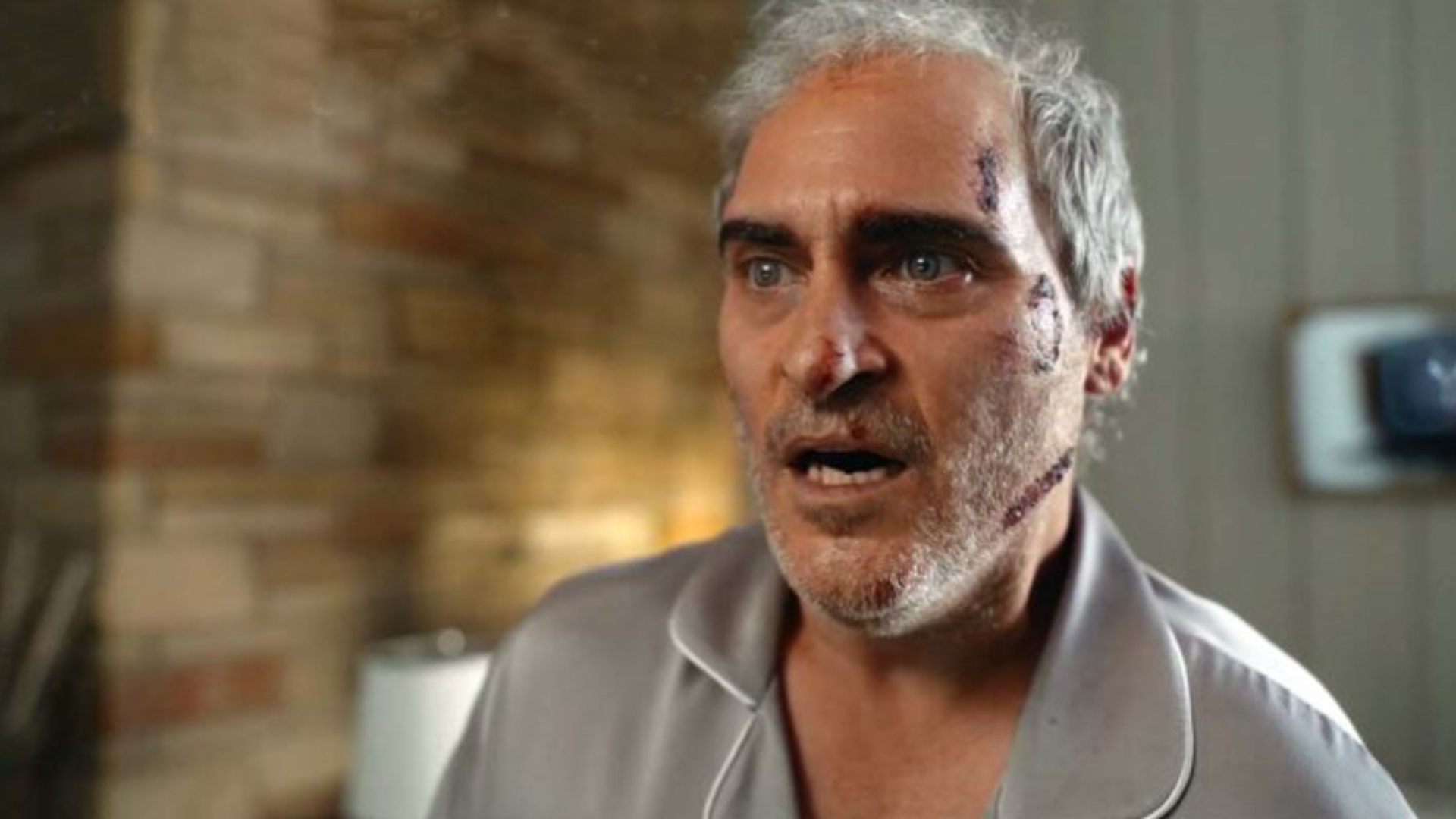
‘From his darkest fears comes the greatest adventure'. So goes the tagline for Beau is Afraid, Ari Aster’s 179-minute follow-up to his landmark 21st-century horrors Hereditary and Midsommar. With all due respect to the marketing department at A24, rarely has a pithy tagline – and the whimsical, Benjamin Button-esque poster it adorns – done a greater disservice to the substance of a film it purports to represent.
That’s because Beau is Afraid is an extraordinary rendering of severe clinical anxiety, using the language of horror cinema to visualise the paranoid nightmare that something as simple as stepping foot outside can turn into. At points, it’s a stress-watch to rival the Safdie bros' nerve-shredder Uncut Gems. But it’s also a deeply funny Freudian head-shag, laden with Jewish guilt and unresolved mummy issues. Try selling that on a poster.
Continuing his mission to become the leading man of choice for every auteur filmmaker working in Hollywood, Joaquin Phoenix stars as Beau, a troubled fortysomething about to visit his successful, domineering mother (Patti LuPone). Residing in a dilapidated apartment situated on the most dangerous street corner in America, Beau is living in a hell of his own delusion. Dead bodies go ignored in the middle of the road, a venomous spider is loose in his building, and a serial killer called Stab Man roams the streets completely starkers. It’s pure chaos – the world hostile to Beau to comical extremes.
Is any of this supposed to be taken at face value? That seems unlikely. Aster is operating in the realm of psychosis and metaphor here. Pre-release materials have downplayed the film’s horror leanings, but fear remains a key feature; it’s just that Aster’s twisted sense of humour registers higher in the mix than ever before. Broken into four distinct, episodic sequences (followed by a conclusive epilogue), the opening 45-minute chapter set in and around Beau’s apartment is instantly arresting and extremely effective, expanding on Aster’s own 2011 short Beau and culminating in one of the most hysterically tense and funny freakouts in recent memory.
There’s still miles and miles to go after this, but the film never quite reaches the same heights again. En route to his mother, Beau is run over by Nathan Lane and Amy Ryan’s suspiciously cheery couple, and taken to their home to recuperate. Things take a turn for the Lynchian here as Beau, in a perpetual state of panic, finds himself trapped in white-picket-fence America, with a family so unhinged he appears the picture of sound mental health in comparison.
In another chapter Beau stumbles across a travelling theatre company in the woods, who put on a production designed to ‘blur the line between the audience and the players’. What follows is the film’s most significant stylistic flex as Beau imagines himself the subject of the tale being told onstage, traversing striking arts-and-crafts landscapes for a dark storybook fable. It looks great, but you might be left wondering what it all means.
The specifics of the confrontational final chapter deserve to be discovered in context, but it’s no spoiler to say that the film is reinvigorated by the arrival of Parker Posey as an old flame of Beau’s. She appears to be in the film purely to facilitate the funniest sex scene – set, incredibly, to Mariah Carey’s Always Be My Baby – since Team America: World Police. And while the film is undoubtedly too strange to be embraced by awards bodies, LuPone makes such an outsized impression during her brief time on screen that you could imagine her cleaning up if this were a more accessible release.
At a minute shy of three hours, it’s an awful lot of movie, and we haven’t even mentioned Denis Ménochet’s crazed army vet who turns Terminator for a stretch. Phoenix is typically committed in a way that hardly warrants mention, packing on the paunch and reportedly passing out during filming, but there’s only one (m)Aster of ceremonies here. And while the director pulls out a few familiar party tricks – night-to-day match cuts, figures lurking in the rafters, people plunging to their death on rocks – he’s in full tonal control of a staunchly esoteric odyssey into a broken mind, flipping proceedings from hysterically funny to horrifying in a heartbeat.
Like many an auteur filmmaker’s passion project, it’s a huge swing that doesn’t always fully connect, and one that undoubtedly peaks too soon. But at a time when safe-bet sequels, franchise extensions and movies built on brand recognition are more prevalent than ever, the fact that something so singular exists and succeeds on its own terms is something to be celebrated.
Beau is Afraid is released on May 19 in the UK and on April 21 in the US. For more upcoming movies, check out our guide to the 2023 movie release dates.







